Jul 2017 1st Edition
Jul 2017 1st Edition Estelle Greeff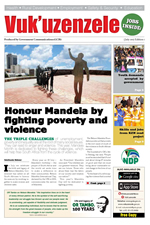
Translations
Honour Mandela by fighting poverty and violence
Honour Mandela by fighting poverty and violence Estelle GreeffThe triple challenges of unemployment, poverty and inequality are at the root of many social issues. They can lead to anger and violence. This year, Mandela Month is dedicated to fighting these challenges, which will help free South Africa from the cycle of violence.
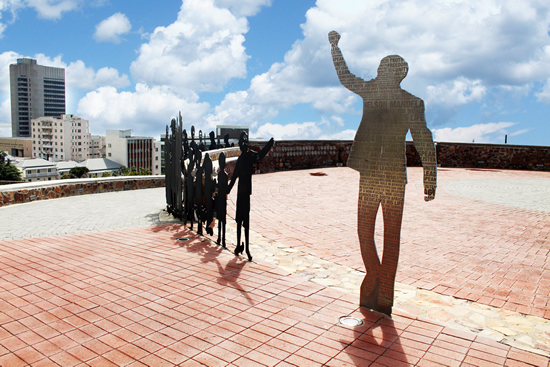 In July we celebrate the birth and legacy of Nelson Mandela. Government has called on all South Africans to honour his memory by working together to make women and
In July we celebrate the birth and legacy of Nelson Mandela. Government has called on all South Africans to honour his memory by working together to make women and
children safer.
Every year on 18 July – Mandela’s birthday – the people of South Africa and the world set aside time to make a difference in their communities. Nelson Mandela International Day, declared by the UN in 2009, commemorates the service
of Mandela.
As President Mandela once said: “Our children are our greatest treasure. They are our future. Those who abuse them tear the fabric of our society and weaken our nation.”
This year’s Mandela Day will be dedicated to
fighting poverty.
The Nelson Mandela Foundation points out that poverty is the root cause of much of the violence in South African society.
The foundation’s CEO, Sello Hatang, has said, “People must be reminded that it’s not just about doing 67 minutes of good and that we must bring about sustainable social change in the lives of our people.
“In the heart of it, we’re saying the violence that is rooted in poverty cannot be allowed to continue.”
Forward to equality
Delivering her department’s budget vote earlier this year, Minister of Women Susan Shabangu said South Africa must unite to fight violence against women.
“It is in our power and within our means, even in the smallest of ways, to contribute to the fight against the abuse of women and children.”
She said the National Development Plan aims to undo persistent discrimination of women and improve their access to education.
Secure employment and socioeconomic empowerment are the best tools government can give women to escape the cycle of poverty and violence.
Empowered and economically active women are a blessing to the economy. “It is only through full engagement of the talents and skills of women in the workplace that would make us more productive and prosperous,” Minister Shabangu said.
Government commitment
The Department of Justice and Constitutional Development has developed the My Safety Plan to help abuse survivors find safe places to stay and allow them access social and economic support.
The programme complements South Africa’s progressive legislation, the enforcement of protection orders, and the work being done by Thuthuzela Care Centres and Sexual Offences Courts to help women and children.
Other programmes, such as the Department of Social Development’s Khuseleka One-Stop Centres and the South African Police Service Family Violence, Child Protection and Sexual Offences Investigation Units have made it easier for women to escape from and report violence.
Also, Minister of Police Fikile Mbalula has made domestic violence a priority crime.
His department is looking at changing legislation to make rape, infanticide, femicide and domestic violence special categories of crime.
“The killing of females because they are females threatens our national security by having a majority section of our population living in fear; it destroys gender balance, economic progress and harmony,” Minister Mbalula said.
Government speaks out
Speaking at the National Men’s Dialogue against Femicide in late June in Pretoria, Deputy Minister of Justice and Constitutional Development John Jeffery said that preventing and reducing violence against women and children is one of the country’s priorities.
He reminded the men in the audience that they were role models to their children, especially their sons.
“Men very often don’t understand the full and devastating effect violence has on women and children. No child should ever have to witness violence in the home.
“That’s also why the way we raise our children, in particular our boy children, is extremely important.”
The Deputy Minister said he was not calling on men to save women, which would be paternalistic. “We need more men to rise up to the challenge and tell other men that violence against women – whether physical or emotional – is unacceptable.
“It is about becoming role-models and mentors in our families and in our communities and showing children and young people that men can be caring, respectful and compassionate.”
Gender-Based Violence command centre
This centre provides support to victims of gender-related violence. The centre operates has a toll-free number: 0800 428 428 (0800 GBV GBV) or by dialling *120*7867# (free from any cell phone) callers can ask that a social worker contact them.
Jobs: Department of Labour
Jobs: Department of Labour UrsulaSenior Employment Service Practitioner III (ESP3)
Centre: Labour Centre: Kimberley
Reference No: HR 4/4/8/318
Salary: Commencing: R417 552 per annum
Enquiries: Mr. J Mphahlele, Tel: (053) 838 1580
PROVINCIAL OFFICE
Chief Director: Provincial Operations: Northern Cape, Department of Labour, Private Bag X5012 KIMBERLEY, 8301
Deputy Director: COID
Centre: Provincial Office: Free State
Reference No: HR 4/4/8/179
Salary: All inclusive: R 657 558 per annum
Enquiries: Dr. N Kahla, Tel: (051) 505 6397
PROVINCIAL OFFICE
Chief Director: Provincial Operations: Free State, Department of Labour, PO Box 522, BLOEMFONTEIN, 9300
Career Guidance Coordinator: Public Employment Services
Centre: Provincial Office: East London
Reference No: HR 4/4/1/90
Salary: Commencing: R417 552 per annum
Enquiries: Ms. KD Mogotloane, Tel: (043) 701 3076
PROVINCIAL OFFICE
Chief Director: Provincial Operations: Eastern Cape Department of Labour, Private Bag X9005, EAST LONDON, 5200
Assistant Director: Supply and Demand (Performance Information Management)
Centre: Provincial Office: Eastern Cape
Reference No: HR 4/4/1/120
Salary: Commencing: R417 552 per annum
Enquiries: Ms. NN Tetyana, Tel: (043) 701 3019
PROVINCIAL OFFICE
Chief Director: Provincial Operations: Eastern Cape Department of Labour, Private Bag X9005, EAST LONDON, 5200
Assistant Director: Beneficiary Services
Office: Provincial Office: Mpumalanga
Reference No: HR 4/4/7/37
Salary: Commencing: R334 545 per annum
Enquiries: Ms. NF Mkhonto, Tel: (013) 655 8829
PROVINCIAL OFFICE
Chief Director: Provincial Operations: Mpumalanga, Department of Labour, Private Bag X7263 WITBANK, 1035
Director: Statutory Services
Centre: Chief Directorate: Statutory and Advocacy Services, Head Office
Reference No: HR 4/18/06/02HO
Salary: All inclusive R 948 174 per annum
Enquiries: Adv. F Mncanca, Tel: (012) 309 4562
HEAD OFFICE
Chief Director: Human Resources Management, Department of Labour, Private Bag X117, Pretoria, 0001
Director: Planning, Monitoring and Evaluation
Centre: Directorate: Planning,Monitoring and Evaluation, Head Office
Reference No: HR 4/18/06/01HO
Salary: All inclusive: R948 174 per annum
Enquiries: Ms. M Bronkhorst, Tel: (012) 309 4969
HEAD OFFICE
Chief Director: Human Resources Management, Department of Labour, Private Bag X117, Pretoria, 0001
Chief Information Officer
Centre: Chief Directorate: Information Communications technology, Head Office
Reference No: HR 4/18/06/17HO
Salary: All inclusive: R1 127 334 per annum
Enquiries: Ms. BB Matebesi, Tel: (012) 309 4865
HEAD OFFICE
Chief Director: Human Resources Management, Department of Labour, Private Bag X117, Pretoria, 0001
Director: Work-Seeker Support Services
Centre: Directorate:Work-Seeker Services, Head Office
Reference No: HR4/18/06/04HO
Salary: All inclusive: R948 174 per annum
Enquiries: Mr. Sagren Govender, Tel: (012) 309 4141
HEAD OFFICE
Chief Director: Human Resources Management, Department of Labour, Private Bag X117, Pretoria, 0001
Closing date for applications: Monday, 18 June 2018 at 16:00
For full details of the advertised posts visit our website: www.labour.gov.za
Applications must be submitted on form Z83, obtainable from any Public Service Department or on the internet at www.gov.za/documents. The fully completed and signed form Z83 should be accompanied by a recently updated, comprehensive CV as well as recently certified copies of all qualification(s) including a Senior Certificate and ID-document [Driver’s license where applicable]. Non-RSA Citizens/Permanent Resident Permit Holders must attach a copy of their Permanent Residence Permits to their applications. Should you be in possession of a foreign qualification, it must be accompanied by an evaluation certificate from the South African Qualification Authority (SAQA). Applicants who do not comply with the above-mentioned requirements, as well as applications received late, will not be considered. The Department does not accept applications via fax or email. Failure to submit all the requested documents will result in the application not being considered. Correspondence will be limited to short-listed candidates only. If you have not been contacted within eight (8) weeks after the closing date of this advertisement, please accept that your application was unsuccessful. Suitable candidates will be subjected to a personnel suitability check (criminal record, citizenship, credit record checks, qualification verification and employment verification). Where applicable, candidates will be subjected to a skills/knowledge test. All shortlisted candidates for SMS posts will be subjected to a technical competency exercise that intends to test relevant technical elements of the job, the logistics of which be communicated by the Department. Following the interview and technical exercise, the selection panel will recommend candidates to attend generic managerial competencies using the mandated DPSA SMS competency assessment tools. Successful candidates will be appointed on a probation period of 12 months. The Department reserves the right not to make any appointment(s) to the above post. The successful candidate will be expected to sign a performance agreement. The Department of Labour is an equal opportunity affirmative action employer. The employment decision shall be informed by the Employment Equity Plan of the Department. It is the Department’s intention to promote equity (race, gender and disability) through the filling of this post(s) with a candidate whose transfer / promotion / appointment will promote representativity in line with the numerical targets as contained in our Employment Equity Plan.
Stay in touch with the department, visit: website: www.labour.gov.za | Facebook: Department of Labour | twitter: @deptoflabour
Jobs: Justice and Constitutional Development - Jul 2017
Jobs: Justice and Constitutional Development - Jul 2017 Estelle GreeffState Attorney: (1 post)
Reference: 17/08/SA: Mthatha
Package: R1 068 564 – R1 277 610 per annum. The successful candidate will be required to sign a performance agreement.
Note: This post is a re-advertisement: Candidates who previously applied are encouraged to re-apply
Requirements: An LLB or Four year recognized legal qualification at NQF 7; 6 - 10 years’ experience on senior managerial level; Admission as an Attorney; Minimum of 8 years litigation experience; Administrative and management experience.
Enquiries: Ms. K. Ngomani (012) 357 8661
Note: People with disabilities are encouraged to apply.
Closing date is 10 July 2017
Note: Interested applicants may visit the following website: www.justice.gov.za or www.dpsa.gov.za to view the full job specification of the above positions. Applications must be submitted on Form Z83, obtainable from any Public Service Department or on the internet at www.gov.za. A Z83 form & CV must be accompanied by original certified copies of qualifications and identity document and a driver’s licence where necessary. A SAQA evaluation report must accompany foreign qualifications. Applications that do not comply with the above mentioned requirements will not be considered. All shortlisted candidates for SMS posts will be subjected to a technical exercise that intends to test relevant technical elements of the job, the logistics of which will be communicated.
Following the interview and technical exercise, the selection panel will recommend candidates to attend a generic managerial competency assessment (in compliance with the DPSA Directive on the implementation of competency based assessments).
Candidate will complete a financial disclosure form and also be required to undergo a security clearance. If the candidate is applying for an OSD post, certificates of service must be attached to the CV.
The DOJ&CD is an equal opportunity employer. In the filling of vacant posts the objectives of section 195 (1) (i) of the Constitution of South Africa, 1996 (Act No: 108 of 1996), the Employment Equity imperatives as defined by the Employment Equity Act, 1998 (Act No: 55 of 1998) and relevant Human Resources policies of the Department will be taken into consideration. Reasonable accommodation shall be applied for People with Disabilities including where drivers licence is a requirement. Shortlisted candidates will be subjected to a personnel vetting process. Correspondence will be limited to short-listed candidates only. If you do not hear from us within 3 months of this advertisement, please accept that your application has been unsuccessful. The department reserves the right not to fill these positions. Women and people with disabilities are encouraged to apply and preference will be given to the EE Target.
Jobs: Social Development - Jul 2017
Jobs: Social Development - Jul 2017 Estelle GreeffIt is our intention to promote representivity (race, gender and disability) in the Public Service through the filling of these posts and candidates whose transfer / promotion/ appointment will promote representivity will receive preference
Chief Director: Children’s Legislation, Monitoring and Reporting (Reference number: K2/A/2017)
Branch: Families and Social Welfare Services
Total cost to employer package: R1 068 564 p.a. This inclusive remuneration package consists of a basic salary, the states’ contribution to the Government Employees Pension Fund and a flexible portion that may be structured i.t.o. the applicable rules.
Centre: HSRC Building, Pretoria
Requirements: An appropriate Bachelors Degree in Social Sciences or equivalent qualification (NQF Level 7) as recognised by SAQA PLUS 5 years’ experience at a senior management level in the children’s sector. Registered with the South African Council for Social Service Professions as a Social Worker. Knowledge of Children’s legislation on regional and international instruments. Knowledge of Children’s Act and other legislation that have an impact on children’s issues. Knowledge and understanding of Probation Act, Child Justice Act, Domestic Violence Act and prevention programmes.
Competencies needed: Strategic capability and leadership skills. Programme and project management skills. Financial management skills. Policy analysis and development skills. Information and knowledge management skills. Communication skills. Service delivery innovation. Problem-solving and change management skills. People management and empowerment skills. Client orientation and customer focus skills. Stakeholder management skills. Presentation and facilitation skills. Interpersonal relation skills.
Attributes: Ability to work under pressure. Innovative and creative. Ability to work in a team and independently. Adaptability. Diplomatic. Independent thinker. Cost consciousness. Honesty and integrity.
Duties: Facilitate the development, monitoring and review of national legislation and policies on children (Children’s Act.). Develop and monitor the implementation of the norms and standards as required by the Children’s Act. Monitor Child Rights implementation at all levels of government and across all sectors. Conduct capacity building on Child Rights and the Children’s Act. Coordinate and monitor the integration of services for Child Rights through the National Machinery. Coordinate and monitor the implementation of the Children’s Act through the Child Care and Protection Forum. Monitoring and support other national departments, national and provincial DSD regarding implementation of legislation and policies. Develop generic indicators to broadly monitor the children’s sector nationally and provincially. Develop an integrated data collection tool accommodating all focus areas. Manage and coordinate the implementation of services to strengthen families.
Note: In terms of the Branch’s employment equity target, African, Coloured and Indian males and African females as well as persons with disabilities are encouraged to apply.
Enquiries: Ms C Nxumalo, Tel: 012 312 7386
Director: Population Policy Strategy Monitoring and Evaluation (Ref No.: K2/B/2017)
Chief Directorate: Population and Development
Total cost-to-employer package: R898 743 per annum. This inclusive remuneration package consists of a basic salary, the states’ contribution to the Government Employees Pension Fund and a flexible portion that may be structured i.t.o. the applicable rules.
Centre: HSRC Building, Pretoria
Requirements: An undergraduate qualification in population studies or related discipline (NQF Level 7 as recognised by SAQA) PLUS 5 years’ relevant experience at a middle or senior management level within the population and development field. A post graduate qualification in population studies or equivalent qualification and Masters Degree will be an added advantage. Knowledge of relevant Legislative Framework. Knowledge of and experience in the social development sector. Knowledge of Population and Development Policy.
Competencies needed: Financial management skills. Programme and project management skills. Communication (verbal, written and liaison) skills. Planning and organising skills. Strategic planning skills. Client orientation and customer care skills. People management and empowerment skills. Analytical skills. Monitoring and evaluation skills. Research skills. Resource management skills. Policy development skills. Computer skills. Problem-solving skills. Coordination skills. Stakeholder management skills. Interpersonal relation skills.
Attributes: Innovative and creative. Ability to work in a team and independently. Ability to work under pressure. Adaptability. Compliant. Independent thinker.
Responsibilities: Manage the development of the national population strategy and the coordination of structures related thereto. Manage the development of planning documents for the Chief Directorate and quarterly and annual progress reports. Manage, monitor and report on the country’s international population and development commitments. Monitor and evaluate the implementation of the population policy through provincial population units and in the social and economic sectors of government.
Note: In terms of the Chief Directorate’s employment equity target, African and Indian males and African females as well as persons with disabilities are encouraged to apply.
Enquiries: Mr J van Zuydam, Tel: 012 312 7961
Applications: The Director General, Department of Social Development, Private Bag X901, Pretoria, 0001, Physical Address: HSRC Building, 134 Pretorius Street, Pretoria. For attention : Ms E Steenkamp
Closing date: 14 July 2017
NOTE: Curriculum vitae with a detailed description of duties, the names of two referees and certified copies of qualifications and identity document must accompany your signed application for employment (Z83). In the event of hand delivery of applications, applicants must sign an application register book as proof of submission. Short listed candidates for SMS posts will be subjected to a technical exercise that intends to test relevant technical elements of the job, the logistics of which will be communicated by the Department. Following the interview and technical exercise, the selection panel will recommend candidates to attend a generic managerial competency assessment (in compliance with the DPSA directive on the implementation of competency based assessments) The competency assessment will be testing generic managerial competencies using the mandated DPSA SMS competency assessment tools. The successful candidate for a SMS post will sign an annual performance agreement, complete a financial disclosure form and also be required to undergo a security clearance. If the candidate is applying for an OSD post, certificates of service must be attached to the CV. It is the applicant’s responsibility to have foreign qualifications evaluated by the South African Qualification Authority (SAQA). Failure to submit the requested documents will result in your application not being considered. Personnel suitability checks will be conducted on short listed candidates and the appointment is subject to positive outcomes of the checks. Correspondence will be limited to shortlisted candidates only. The selection of candidates will be done with due regard to the relevant aspects of the selection process as set out in the Public Service Regulations, 2016 Chapter 4/67. Applications received after the closing date will not be taken into consideration. No faxed or e-mailed applications will be considered. If you have not been contacted within three months after the closing date of this advertisement, please accept that your application was unsuccessful. Candidates requiring additional information regarding the advertised post may direct their enquiries to the person as indicated. Internal applicants must submit and register their employment applications at the register book in the DSD reception area for the attention of Ms E Steenkamp.
It is our intention to promote representivity (race, gender and disability) in the Public Service through the filling of these posts and candidates whose transfer / promotion/ appointment will promote representivity will receive preference.
Mpumalanga school reaches milestone thanks to CSTL
Mpumalanga school reaches milestone thanks to CSTL vuyelwanFunjwa Primary School is located on the outskirts of the town of Hoedspruit, bordering South Africa’s iconic Kruger National Park.
This is one of the schools benefitting from the Care and Support for Teaching and Learning (CSTL) programme in Mpumalanga. 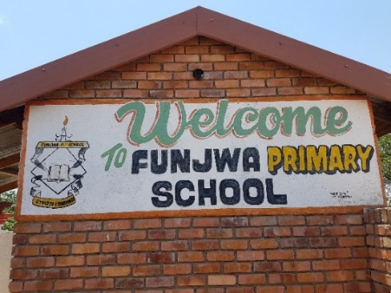
This programme was developed by the SADC Secretariat in partnership with UNICEF.
UNICEF South Africa is an active advocate of educational models.
CSTL aims to remove health and social barriers which limit the potential of children and has ten priorities, which include nutrition, safety, health, material support, grants, identification documents, socially inclusive and cohesive initiatives, ending gender-based violence, and supporting curriculum and co-curriculum support with a focus on inclusive education as well as leadership and child-empowering initiatives.
CSTL is currently being tested, in conjunction with the Mpumalanga Department of Basic Education, in 393 schools in the province.
Focus areas include curriculum and psycho-social support, HIV and broader health surveys as well as deworming and ensuring that a range of minimum standards are adhered to.
UNICEF South Africa education specialist Dr Saadhna Panday said since the inception of CSTL in these schools, the overall matric pass rate in the province has increased.
The South African Department of Home Affairs was roped in to register Funjwa pupils who do not have birth certificates and identification papers. It is only with these critical documents that children can access the vital social security grants.
The school has 702 learners and 23 educators.
“This school started under a tree,” said educator Thandi Mthethwa. 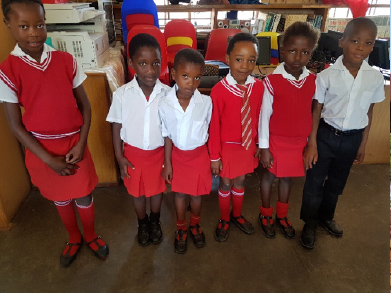
Distressed by the poverty of the children in the area, she set up a care centre which is adjacent to Funjwa Primary School. She says CSTL has made a great difference to the community and has given learners a degree of self-actualisation.
Deputy Principal Rose Mbethe said thanks to CSTL, there are no pregnant learners and, unlike other schools in the area, very little alcohol and drug abuse.
Funjwa Primary School is an example of a well-functioning learning institution where commitment and dedication is evident, the benefits of CSTL are clear and life-changing.
Desalination plant relieves KZN drought
Desalination plant relieves KZN drought Estelle GreeffA new R300 million mobile desalination plant in Richards Bay is turning salty seawater into fresh drinking water for more than 150 000 KZN households.
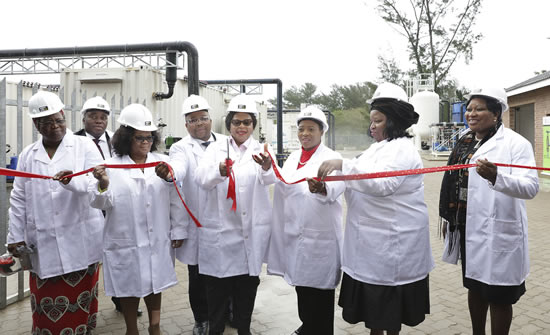 KwaZulu-Natal has been hit hard by the recent drought. The province lies on the Indian Ocean coast, but all that salty sea water gives no relief. Today, a new mobile desalination plant in Richards Bay is processing sea water into 10-million litres of fresh water every day.
KwaZulu-Natal has been hit hard by the recent drought. The province lies on the Indian Ocean coast, but all that salty sea water gives no relief. Today, a new mobile desalination plant in Richards Bay is processing sea water into 10-million litres of fresh water every day.
This water is pumped to reservoirs in Richards Bay, which have gone from an average of 55 per cent to 90 per cent full. From there, the water is piped to more than 150 000 households in Madlazini, Mereensee, eNseleni, eSikhaleni, Ngwelezana, KwaDlangezwa, Felixton and surrounding areas.
The R300 million plant was recently launched by Minister of Water and Sanitation Nomvula Mokonyane. It is the first, largest and most modern mobile sea water purification unit in South Africa, made up of 10 desalination containers next to the water treatment plant at Richard Bay’s Alkantsrand Beach.
Two-year drought
KwaZulu-Natal had suffered drought for over two years, the Minister said. In December 2014 the provincial government declared a drought in the province. By August 2016, Richards Bay’s main water supply had dropped to a dangerously low level of 16 per cent.
“The desalination plant is now 100 per cent complete and functional,” Minister Mokonyane said. “The plant started to produce water on 14 November 2016, and a total of 10 megalitres a day of production was commissioned by 25 January 2017.”
One of the beneficiaries is Gogo Lina Gumede, who said her household had been without water for two years.
“The yard tap dried up long time ago. We have been drinking water from the MaNdlazini River. We were sharing that water with cows and goats. But now there is a plant we hope the water scarcity problem will be solved and we will drink clean safe water again.”
Mandela Month – a time of selfless service and nation building
Mandela Month – a time of selfless service and nation building Estelle Greeff
Our icon and late international statesman President Nelson Mandela was born on 18 July 1918. He led the revolutionary struggle for freedom and democracy in South Africa and became the first democratically elected leader of our country. For him, the nation’s reconciliation and reconstruction were sacrosanct.
Thus, on 18 July every year, individuals around the world, including in South Africa, mark Nelson Mandela International Day by making a difference in their communities.
In November 2009, the United Nations (UN) General Assembly declared 18 July Nelson Mandela International Day “in recognition of the former South African President’s contribution to the culture of peace and freedom”. The UN further declared that “everyone has the ability and the responsibility to change the world for the better, and Mandela Day is an occasion for everyone to take action and inspire change”.
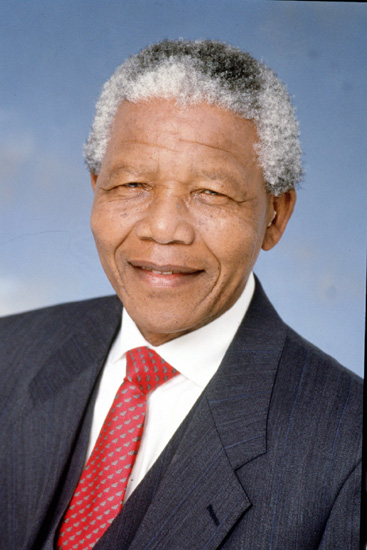 For 67 years Tata Mandela devoted his life to the service of humanity and it is thus on this day and the entire month of July that we dedicate 67 minutes to doing good deeds in our communities.
For 67 years Tata Mandela devoted his life to the service of humanity and it is thus on this day and the entire month of July that we dedicate 67 minutes to doing good deeds in our communities.
We wish to encourage all South Africans to engage in meaningful and constructive community work by dedicating themselves to improve the lives of poor people and uplift the lives of those in need; to build a united and more caring society.
We must therefore, in honour of Madiba, continue to inspire change and take every action individually and collectively to make a difference in addressing the most pressing challenges of poverty, inequality and unemployment, as well as the resultant social ills of drugs and substance abuse, and the resurgent abuse and killing of our women and children.
We would like to encourage young people in particular to champion Madiba’s spirit of selfless service, peace and nation building and to take forward the culture of partnering with business and our communities to build much needed community resources such as schools and health facilities.
Young role models
On June 16 Youth Day, I hosted a few young trailblazers and achievers who prove that it is possible for young people to succeed in South Africa. We introduced these young go-getters and role models to the nation to show that there’s a lot of talent and excellence in our country and that they are an inspiration by making a difference in their communities.
We hosted young job creators who have established their own businesses in manufacturing dry bath technology and branding materials; in designing assistive devices for cancer and burn victims; in the shoe repair business; in IT support, network design and cyber security; in catering and canteen services; in the setting up of a water leaks company and in manufacturing hand-crafted products.
We also hosted a young specialist and lecturer as well as a representative from a non-profit organisation that identifies self-motivated youth orphans from impoverished and rural communities for support. Also present were our innovators – the inventors of a 15-in-1 microwave oven, of an electronic vuvuzela and of an auto shoe polisher.
Making a difference
On the day, we also reported that government is playing its part to empower young people by creating job opportunities through programmes such as the Expanded Public Works Programme (EPWP). Since the launch of Phase 3 of the programme in 2014, the EPWP has created 2.6 million work opportunities, with more 1.2 million opportunities taken up by the youth.
We believe that South Africans, and young people in particular, have greater opportunities to change our environment and communities for better, to help us grow our economy and to contribute to creating the prosperous country Tata Madiba lived and died for.
President Mandela said: “What counts in life is not the mere fact that we have lived. It is what difference we have made to the lives of others that will determine the significance of the life we lead.”
As we remember and honour our beloved Madiba, we wish you all a meaningful and productive Nelson Mandela Month, dedicated to service to all our communities.
North West gets Back to Basics back on track
North West gets Back to Basics back on track Estelle GreeffThe North West provincial government will work closely with ailing municipalities to speed up service delivery during phase two of the Back to Basics programme.
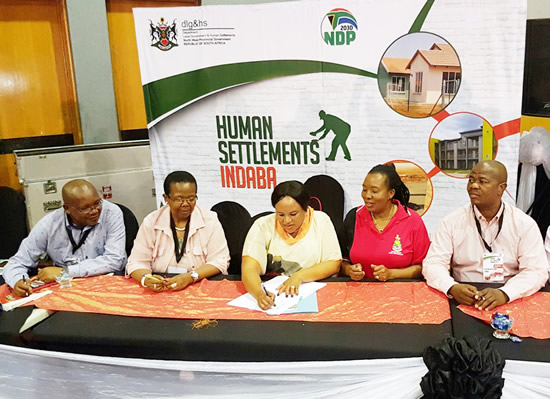 The North West government will work with municipalities to speed up the delivery of services to communities in the second phase of the Back to Basics (B2B) programme, according to Local Government and Human Settlements MEC Fenny Gaolaolwe.
The North West government will work with municipalities to speed up the delivery of services to communities in the second phase of the Back to Basics (B2B) programme, according to Local Government and Human Settlements MEC Fenny Gaolaolwe.
The 2016/17 financial year was critical to the success of the B2B programme’s second phase, the MEC said.
“The department commits to continue with coordination of the implementation of the Back to Basics programme to respond to the 10 Point Plan of Priority Actions.”
MEC Gaolaolwe said her department would work closely with the Finance, Economy and Enterprise Development (FEED) department to assist ailing municipalities given disclaimer audit opinions by the Auditor General.
Operation Audit
“We have initiated Operation Audit rooms in partnership with FEED to support municipalities receiving disclaimer audit opinions,” the MEC said.
“This operation focuses on the establishment and maintenance of proper records and information management systems. It will further provide support to strengthen municipal audit committees and internal audit structures whose responsibility it is to review the financial records of municipalities.”
MEC Gaolaolwe said her department would keep an eye on how well ailing municipalities implemented recommendations coming out of forensic investigations.
Proper leadership and skilled management were key to running a municipality successfully, she said.
“The department will continue to support municipalities to build leadership and management capacity of ward committees to ensure that they are responsive to the community needs.
“We have conducted induction workshops on the role and responsibilities of wards committees across the province.”
Better revenue collection
Municipalities get their funds both from the provincial government and from revenue collected from citizens and businesses living and operating in the municipality.
To ensure North West municipalities got the funds they needed to deliver services, MEC Gaolaolwe said, her department would work closely with FEED to develop strategies on how to improve the collection of revenue.
Twelve municipalities have already developed their strategies. They are Dr Kenneth Kaunda District, Tlokwe, Moretele, Madibeng, Kgetlengrivier, Lekwa Teemane, Greater Taung, Naledi, Tswaing, Ramotshere Moiloa, Mamusa and Mahikeng.
Shared services for better administration
Shared services for better administration Estelle GreeffThe North West Department of Local Government and Human Settlements’ shared services initiative is yielding good results.
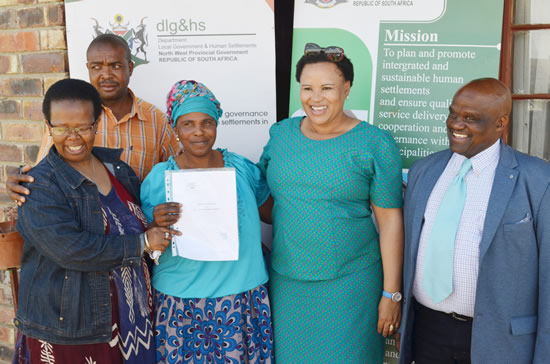 MEC Fenny Gaolaolwe said the project, launched in 2017, aimed to ensure municipalities delivered quality services to the province’s communities.
MEC Fenny Gaolaolwe said the project, launched in 2017, aimed to ensure municipalities delivered quality services to the province’s communities.
So far, the intervention has improved internal audit procedures, risk management, the working of audit committees, and the management of spending on capital projects.
The programme includes shared internal audit services. These have already improved financial management in Mahikeng, Kgetlengrivier, Moses Kotane and Maquassi Hills.
“We have stopped the process of outsourcing internal audit services in our municipalities,” the MEC said. “There is progress in financial management by municipalities, and improved functionality in the audit committees.”
Municipal audits
MEC Gaolaolwe said her department was pleased with improvements in the previous financial year’s audits of municipal finances, after some interventions.
“Out of the 23 municipalities, only six were disclaimed and one audit report is still outstanding. Six municipalities received unqualified audit reports, while 10 municipalities received qualified audit reports.”
Housing development
MEC Gaolaolwe said that since the launch of North West Premier Supra Mahumapelo’s Setsokotsane campaign, the province had made huge strides in providing housing.
“We managed to achieve the implementation of 17 551 housing opportunities comprising of 10 997 units and 6 554 serviced sites out of a target of
15 080 opportunities,” she said.
“The mining town’s overall achievements are at 4 876 units in the 2015/16 financial year, out of a target of 4 188 units. We continue to implement our special programme initiatives in support of women and youth contractors.
“To this end, 12 women contractors have been appointed to build 1 400 units through the 1956 women’s build programme. We want to confirm that the contractors are currently on site in Itsoseng, Mahikeng, Glaudina and Lethabong.”
Youth demands accepted by government
Youth demands accepted by government Estelle GreeffA declaration by young delegates to the Higher Education and Training HIV/Aids National Youth Conference has been handed to national leaders.
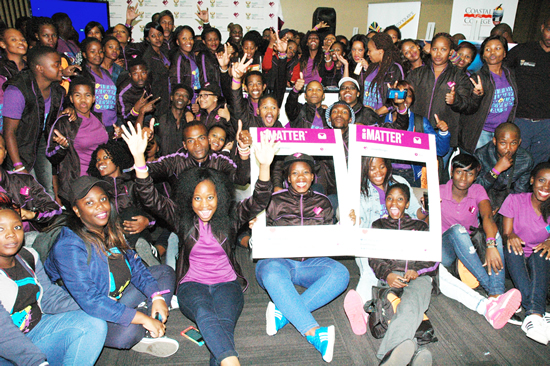 Government has committed to work with its partners to implement the Higher Education and Training HIV/Aids National Youth Conference declaration handed to leaders by the youth.
Government has committed to work with its partners to implement the Higher Education and Training HIV/Aids National Youth Conference declaration handed to leaders by the youth.
More than 1 800 young people from across the country gathered at the Inkosi Albert Luthuli International Convention Centre in Durban for the event.
The conference was convened to find ways to help eradicate the impact of HIV, sexually transmitted infections and TB. It also aimed at strengthening responses to all health and wellness issues in higher education.
Youth delegates to the conference summarised their main objectives in a declaration presented to Health Minister Aaron Motsoaledi, Higher Education Deputy Minister Mduduzi Manana, Deputy Minister in the Presidency Buti Manamela, and conference chair Andile Mthombeni.
The youth said the declaration is their way of holding government accountable.
They called on government leaders to pledge on their full and sustained commitment to achieving the objectives.
These include:
- Free education for the economically vulnerable, as youth understands that HIV status and financial status are interlinked.
- Supporting youth in implementing women empowerment programmes that include men, so both can actively participate in discussions on gender and so fight patriarchy.
- Addressing patriarchy and male privilege within government, so policy makers will understand the importance of fighting gender-based violence and empowering women and girls.
- Establishing emergency medical and counselling services for survivors of gender-based violence that are accessible to all young people.
- Finding a sustainable mechanism to provide sanitary towels to all female students
- Addressing the needs of lesbian, gay, bisexual, transgender and intersex people and holding universities and colleges accountable for responding to these needs.
- Making the National Youth Development Agency accessible to all youth.
- Helping youth to activate the youth sector of the South African National Aids Council.
- Funding regular youth summits and dialogues at educational institutions to give youth the chance to raise their concerns directly with the country’s leaders.
Dr Ramneek Ahluwalia, HIV/Aids programme director for the Department of Higher Education, said the declaration was taken seriously, and that government would work with its partners to ensure its implementation.
“We have long believed that the traditional top-down approach is severely outdated and that if the HIV pandemic is to be halted, a new approach should to be taken,” he said.
“It is clear that our current HIV/Aids interventions are not adequately reaching our young people.”
Books4Mzansi app to stock township libraries
Books4Mzansi app to stock township libraries Estelle GreeffSoftware developer Nobubele Shozi’s Books4Mzanzi app will connect book donors with schools and libraries in need.
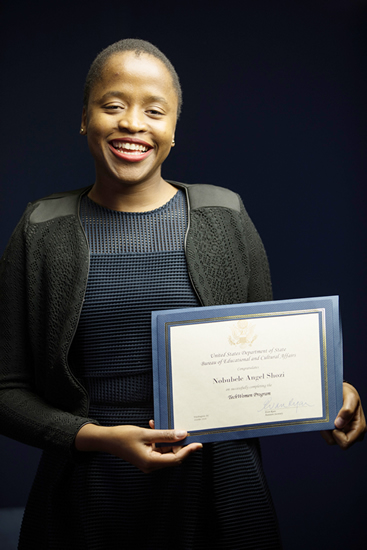 One of the biggest challenges to a culture of reading in South Africa is that schools in poor communities do not have libraries.
One of the biggest challenges to a culture of reading in South Africa is that schools in poor communities do not have libraries.
Many people might want to donate books to these schools, but don’t know how.
Nobubele Shozi, a 30-year-old software developer and researcher at the Council for Scientific and Industrial Research, has read between the lines and, working with a group of other women, come up with a solution.
Shozi is developing an app called Books4Mzanzi, which will help people to donate books to schools in townships.
The app will be accessible on mobile devices and desktop computers. It will allow potential donors to search through a database of schools and quickly identify their needs.
Once a donor has indicated their interest, Shozi’s team will arrange for donated books to be collected and transported to the chosen school.
Working with partners
Shozi and her team are talking to a number of potential partners, including the Rosa Parks Library, to decide which schools to target.
“We will be asking people to donate textbooks, reading books and if you have some educational games that you feel you need to donate, we are willing to do that.
“So anything that will encourage reading and learning will be welcome,” she said.
The development of the app is thanks to a $2 500 (about R33 000) TechWomen seed grant awarded to Shozi and four of her partners in Washington, USA, last year.
Youth in technology
Youth in technology LondekileSouth Africa’s future growth depends on young people embracing new technologies and innovation.
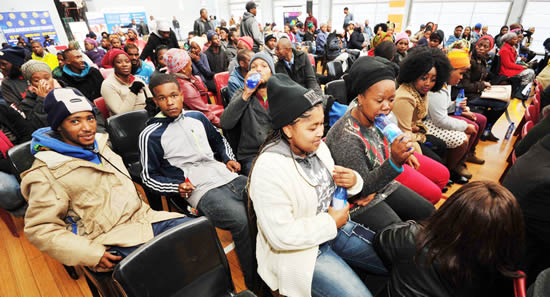 Two recent Youth Month events highlighted the importance of South African youth embracing technology and innovation. Science and Technology Minister Naledi Pandor spoke to young science students at the CSIR and Minister in the Presidency Jeff Radebe spoke to high school students at a Youth Dialogue in Khayelitsha.
Two recent Youth Month events highlighted the importance of South African youth embracing technology and innovation. Science and Technology Minister Naledi Pandor spoke to young science students at the CSIR and Minister in the Presidency Jeff Radebe spoke to high school students at a Youth Dialogue in Khayelitsha.Speaking at the Youth in Science, Technology and Innovation Indaba, Minister Pandor explained that future growth depended on embracing new technologies and innovation.
The growth of the technology sector offered young South Africans a chance to change the world. It was youth like those in the audience, she said, who would create the jobs the country needed.
“We are inspired by the success of new entrepreneurs and innovators who have taken advantage of the booming tourism industry, the booming mobile industry, the growing market in renewable energy, and the evolving market in the cultural and creative industries.”
The minister added that it was the enthusiasm of science students that made it possible for government to convince business to help fund the 34 science centres that have been established over the last 10 years.
The department has built on this public-private partnerships and introduced an internship programme at the top tech companies in South Africa.
“Youth employment is critical in building a stable society and in promoting and sustaining national economic growth. And internships are part of our country’s efforts to expand the science and engineering workforce for those with scarce skills.”
Get ambitious
In Khayelitsha, Minister Radebe told an audience they needed to match the ambition of South Africans like Elon Musk and Siya Xusa. They are innovators who followed their interests and created companies that employed thousands.
“Your ambition as young people must not only be to aspire to get a job. Your ambition should be to be a job creator. Become entrepreneurs so that we can build a South Africa of our dreams,” he said.
To be competitive in the new world of work, to be the highly educated and highly skilled innovators that South Africa needs them to be, they needed to choose to study STEM subjects – science, technology, engineering and maths.
“It is important that we should think about the future because the world is moving at a very rapid pace. If as young people you are not part of that STEM, you are not part of that ICT revolution, technology will leave you behind,” he said.
Government, the minister added, would create the foundation for young South Africans to build on by making it easier to access education and skills training. In return, they needed to use those skills to create the jobs of the future.
“Sixty per cent of all young people who are in primary school this year will be in jobs that do not exist today. My advice to you is choose to study STEM.”
Fundasmart makes learning a game
Fundasmart makes learning a game LondekileTwenty-nine-year-old entrepreneur Kim Chulu Mukenge has combined his passions for gaming and education to create a series of games called Fundasmart that improve learners’ English, Maths and Science performance.
Mukenge is a visual arts graduate from the Tshwane University of Technology. He and his business partners created Fundasmart to make these often difficult subjects fun.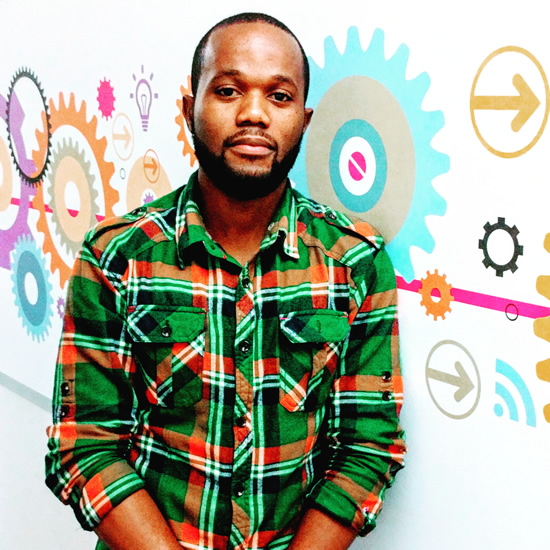
The games help pupils remember what they have learned from an early phase, allowing them to apply it in the real world.
His company, Kimard Studio, developed the 3D apps to be used on desktop computers. They are currently developing versions for mobile phones, he says.
“Everything is about enhancing the learning experience of the learners and have them enjoy learners through new mediums.”
Gaming at school
Developing the games for desktops first made business sense to Mukenge. Players have access to computers at school, where they can play the games. He and his partners have presented Fundasmart to several schools.
“It only makes sense that we try and focus on that so that they can have the game at schools more than at home.”
The games have two parts: the learning phase and the discovery phase. Users first learn the subject’s basics and then apply the knowledge in a game situation.
In the English-subject version, the learning phase teaches the user the basics of grammar and parts of speech. In the second phase, the user controls a character who walks through a neighbourhood to buy food. All instructions issued to the character are based on the correct use of words and tenses.
“What we have picked up is most of the things young people learn are not always from school,” Mukenge says. “They are from experimenting with those things themselves. Learning comes from exploring the environment themselves.
“So if we change all this content that is usually considered boring, and we put it into more interesting aspects, we let people discover for themselves and apply what they have discovered, they enjoy the learning process. They participate and memorise better.”
Visit www.fundasmart.com
Pregnancy checkups for healthier babies
Pregnancy checkups for healthier babies LondekileTo ensure healthier moms and babies, the Department of Health recently increased the number of free antenatal visits pregnant women can make to government hospitals and clinics from four to eight.
 A pregnant woman who is examined by health care providers more often is likely to have an easier pregnancy, and give birth to a healthier, stronger baby.
A pregnant woman who is examined by health care providers more often is likely to have an easier pregnancy, and give birth to a healthier, stronger baby.For this reason the Department of Health recently raised the number of free antenatal visits women can make to government clinics during the course of their pregnancies from four to eight.
Minister of Health Aaron Motsoaledi has encouraged pregnant women to make use of the extra visits. They will allow medical professionals to detect and treat health problems and screen for other problems that may arise. This is especially true for first-time mothers.
“We hope through these additional antenatal care visits, pregnant women will be also able to receive regular blood pressure testing, urine testing, monitoring of the baby’s growth and movements for safe pregnancies and healthy babies because any delays may lead to avoidable deaths,” the Minister said.
Why are antenatal visits important?
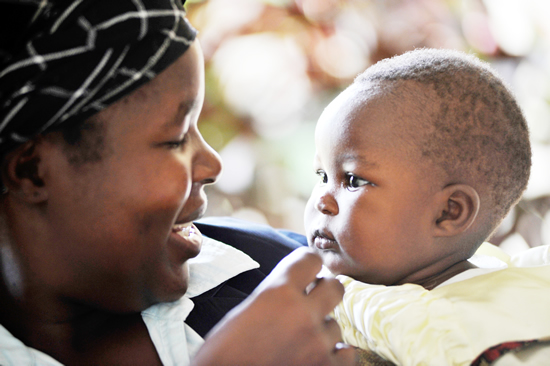
- Women who think they are pregnant should visit a clinic or doctor as soon as possible to begin antenatal care. Early visits to the clinic, and going to all your antenatal care appointments, will ensure you have a healthy pregnancy and deliver a healthy baby.
- The first visit will include a blood pressure check, weight check, providing a urine sample, testing for sexually transmitted infections and checking for TB.
- The next visits will include blood tests, an ultrasound and counselling. Nurses and social workers will be there to answer questions about your pregnancy.
- The mother’s partner, friend or family member should go with her to every antenatal visit. It is important that the mother has someone she trusts to support her during the pregnancy, the labour, and after the birth. This support is very important for a healthy pregnancy and a healthy baby.
Schedule of care visits
The eight visits should be made in these weeks of the pregnancy:
- First visit: week 14
- Second visit: week 20
- Third visit: week 26
- Fourth visit: week 30
- Fifth visit: week 34
- Sixth visit: week 36
- Seventh visit: week 38
- Eighth visit: week 40
Why eight visits?
- Regular blood pressure and urine testing
- More frequent monitoring of your baby’s development
- Early detection and timely treatment of any complications
- Will allow for HIV testing. If you are HIV positive, the visits will help you adhere to antiretroviral (ARV) therapy, to keep you healthy and prevent infecting the baby with HIV.
MomConnect
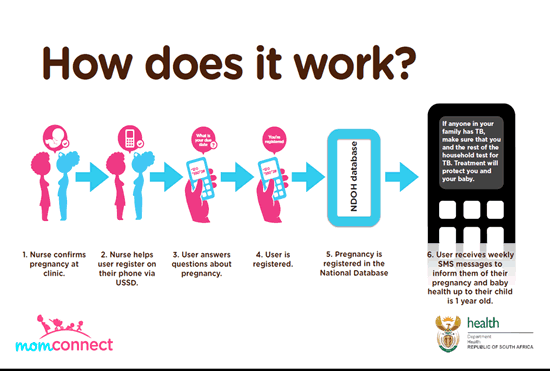 MomConnect, a mobile app for pregnant women, helps reduce maternal and infant deaths. MomConnect gives more than a million pregnant women and new mothers access to vital services and health information.
MomConnect, a mobile app for pregnant women, helps reduce maternal and infant deaths. MomConnect gives more than a million pregnant women and new mothers access to vital services and health information.
MomConnect has three objectives:
- Registering each pregnancy at a government health facility.
- Sending personalised SMSs to moms based on their needs. Messages will be in the appointment reminders or information to help take better care of herself and her baby.
- Making the healthcare system more accessible to women.
ECDC fund helps co-op farmers go commercial
ECDC fund helps co-op farmers go commercial LondekileFunding from the Eastern Cape Development Corporation is helping rural farmers process their raw produce, adding value to their crops and boosting their incomes.
Imvaba finance of R500 000 has allowed the co-op to build a small processing plant to mill its maize crop into livestock feed and retail maize meal.
At the launch of the plant, Eastern Cape Economic Development MEC Sakhumzi Somyo commended Matyeni for its initiative and called for rural people to create small businesses to boost rural economies.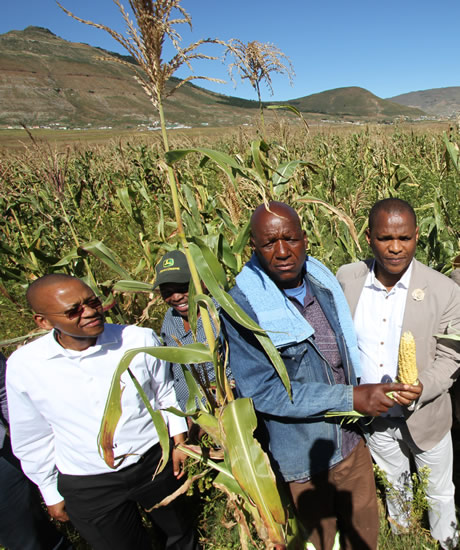
The Matyeni co-op was established in 2012. It has 300 hectares under maize, expected to yield 4.5 tons a hectare at harvest, said Matyeni Agricultural Co-operative chairperson Walaza Mazule.
“We are planning to increase maize production to 700 hectares. We are already in negotiation with the local Shoprite and Boxer stores to supply them with our processed maize meal. But we need to increase supply to meet this demand,” Mazule said. He said their plans will gain traction when the planned Mount Frere Fresh Produce Market gets off the ground.
Animal feed
The co-operative has cabbages, carrots, beans, pumpkins and spinach planted on a further eight hectares. It also has 180 sheep, 53 cattle and 223 chickens.
Imvaba Fund manager Simphiwe Ntshweni said that for two years the co-op had been using a processing plant in Mbizana, 140km away, to make animal feed from their maize. This had improved the quality of their meat, but transport was costly.
“With the assistance of the Umzimvubu Local Municipality Local Economic Development Unit, they approached ECDC for help to establish their own mini-processing plant,” Ntshweni said.
“Imvaba assessed the business and approved R500 000 to buy a hammer mill, a sheller and a three-phase generator in the absence of electricity in the area.”
Millions in funding
Ntshweni said that adding value to agricultural produce was the key to better rural livelihoods.
“Only the beneficiation of primary produce will lead to improved rural incomes.”
Ntshweni said the R500 000 is part of R80.7 million disbursed to 153 co-operatives since the Imvaba Co-operative Fund was established.
“ECDC has also provided funding to seven potato-producing co-operatives in the OR Tambo district to the value of R3.35-million in the last year. The funds were used to buy agricultural inputs such as fertilisers, seeds and pesticides.
“The seven co-operatives have planted 26 hectares of potatoes in this their first season, estimated to yield 1 500 10-kilogram bags of potatoes per hectare at harvest.”
Small businesses get the technology edge
Small businesses get the technology edge LondekileYouth focus
Small and medium-sized companies in the Eastern Cape stand to benefit from new digital technology through a partnership between Vodacom and the province’s Chamber of Business.
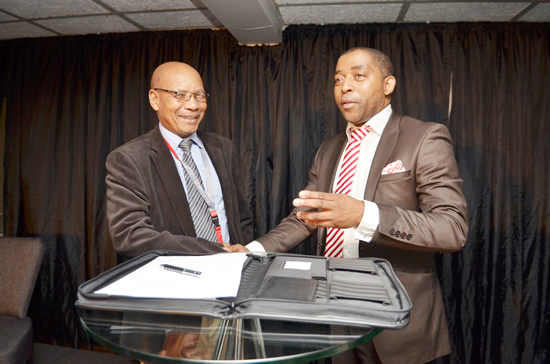 The Eastern Cape Chamber of Business (ECCOB) and telecoms giant Vodacom have entered a partnership to provide technology services to small and medium-sized enterprises (SMEs) in the province.
The Eastern Cape Chamber of Business (ECCOB) and telecoms giant Vodacom have entered a partnership to provide technology services to small and medium-sized enterprises (SMEs) in the province.Signing the agreement in East London recently, Vodacom Business chief officer Vuyani Jarana said entrepreneurs starting a business had the burden of being the jack of all trades, from marketing manager to IT specialist. The new digital support would lighten this load.
“Our ultimate goal is to make all ICT and operational requirements a seamless process for small businesses,” Jarana said. “This will enable them to focus their attention on their core business without any unnecessary distractions.”
The Eastern Cape is the first province to enter this kind of partnership with Vodacom. The initiative has been sanctioned by both the Premier and the MEC for Economic Development.
Boosting business
Small businesses will have first access to trial Vodacom’s enterprise mobility solutions. These include the Business Booster, a mobile platform that allows tradespeople and professionals to quote, invoice and accept payments while on the job.
The services will eventually be rolled out across South Africa. Jarana said the solutions would boost small businesses’ competitiveness at home, and in the rest of Africa.
“The digital economy is the single most important driver of growth, innovation and competitiveness on the continent and it holds huge potential for South Africa,” he said. “Small businesses must embrace the digital economy and our partnership with the ECCOB marks the beginning of an exciting digital journey.”
Promoting growth
Vodacom will provide resources to train the business chamber and its members, and help them adopt its SME services.
Andile Nontso, secretary-general of the ECCOB, said the agreement would benefit the whole province. “This partnership will go a long way towards promoting the growth of small businesses in the Eastern Cape, which in turn will boost the regional economy.”
According to Vodacom, its SME-supportive technology is a fixed solution available to all its network subscribers. Enterprise mobility applications and cloud solutions will allow SMEs to operate from anywhere and at any time.
Another service to be provided through the chamber is One Net Business, which integrates and links companies’ mobile phones and land lines.
Eastern Cape businesses who would like to find out more can contact Bukeka Soyizwapi at the ECCOB on 047 531 4979 or email bsoyizwapi84@gmail.com.
Boost for agro-processing businesses
Boost for agro-processing businesses Londekile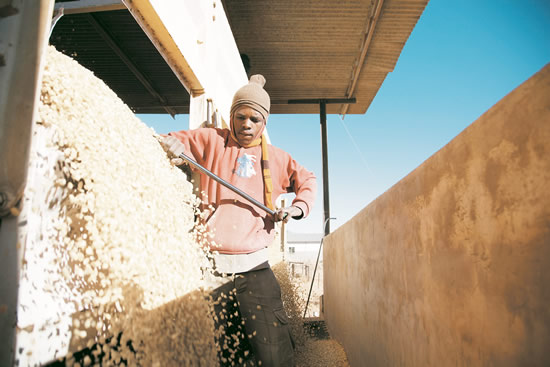
The Agro Processing Support Scheme aims to increase capacity and competitiveness, create employment and enhance transformation in South Africa’s agro-processing industry.
The scheme targets five key sectors: food and beverage value addition and processing (including black winemakers), furniture manufacturing, fibre processing, feed production, and fertiliser production.
Strict qualifications are required to access the funding. Applicants must be taxpayers in good standing, be involved in starting a new agro-processing or beneficiation operation or in upgrading an existing operation, be Broad-Based Black Economic Empowerment (B-BBEE) compliant from level 1 to level 4 of the B-BBEE codes, and must submit a valid B-BBEE certificate of compliance or an affidavit.
Applicants’ investment projects must also be likely to retain and create direct employment. The project should be able to boost the local capacity of identified products. At least 50 per cent of raw materials must be sourced from South African suppliers, and 30 per cent sourced from black South African suppliers.
Once the application is approved, the applicant must ensure that the funded project begins operations within 90 calendar days.
For more information on the Agro Processing Support Scheme, contact the Department of Trade and Industry on 012 394 9500 or e-mail contactus@thedti.gov.za.
Rural KZN village powers up
Rural KZN village powers up LondekileTears flowed when 84-year-old Thobekile Mkhize switched on the electricity in her home for the first time, after the KwaZulu-Natal government launched its R8.6 million electrification project in the rural Nquthu community.
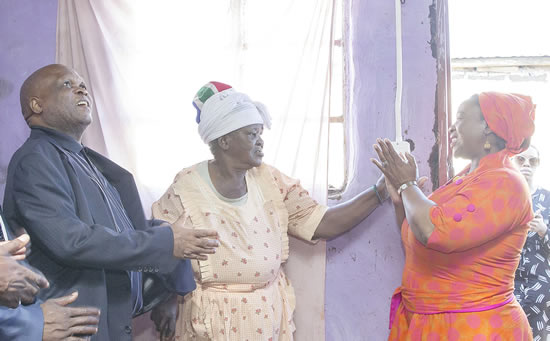 The days when 17-year-old Khethelo Sithole of Magogo Village in Nquthu, northern KwaZulu-Natal, had to study by candlelight are over. Today Sithole has light at the flick of a switch, thanks to the government’s Comprehensive Rural Development Programme. The programme aims to mobilise and uplift rural communities, and ensure access to essential services such as water, sanitation and electricity.
The days when 17-year-old Khethelo Sithole of Magogo Village in Nquthu, northern KwaZulu-Natal, had to study by candlelight are over. Today Sithole has light at the flick of a switch, thanks to the government’s Comprehensive Rural Development Programme. The programme aims to mobilise and uplift rural communities, and ensure access to essential services such as water, sanitation and electricity.
KwaZulu-Natal MEC for Cooperative Governance and Traditional Affairs Nomusa Dube-Ncube and MEC for Agriculture and Rural Development Themba Mthembu launched a large-scale electrification project at Magogo Village recently.
The R8.6 million project will electrify 350 local households, benefiting 2 000 people. Sithole said she never thought a deep rural village like Magogo would ever have electricity.
“I used to watch television when I visited my mother in town. But now I will watch it here,” she said.
“At school they require us to have phones with internet, but to charge our phones we had to spend R86 to go to town. Having electricity is a huge relief for us.”
A great job
At the launch, tears flowed as 84-year-old Thobekile Mkhize switched on the electricity in her home for the first time. The government, she said, had done “a great job” by providing her community with electricity, toilets and water.
Speaking att the Magogo Sports Grounds in Nquthu, MEC Dube-Ncube called on the community to protect the new electricity infrastructure from the scourge of cable theft.
“This electricity is provided for you, so look after it,” she said.
“By the end of the year you will all have electricity. For those of you who are not yet connected, just wait. It is coming to you, so do not make an illegal connection. Electricity is very dangerous if it is connected illegally.”
MEC Dube-Ncube urged residents to use electricity wisely. “We promised as government to ensure that all our residents get electricity. We are keeping our part of the deal, but you as residents have to keep yours by ensuring that you pay for the electricity we provide.”
The two MECs also officially opened the newly renovated Embokodo Embomvu Traditional Council, and handed over a deep tank and grazing land fencing for livestock farmers in the community.
Skills and jobs from KZN road project
Skills and jobs from KZN road project LondekileThe lives of 84 young people from the poverty-stricken community of Inanda in north of Durban are set to change for the better thanks to a KwaZulu-Natal Department of Transport project under the Expanded Public Works Programme.
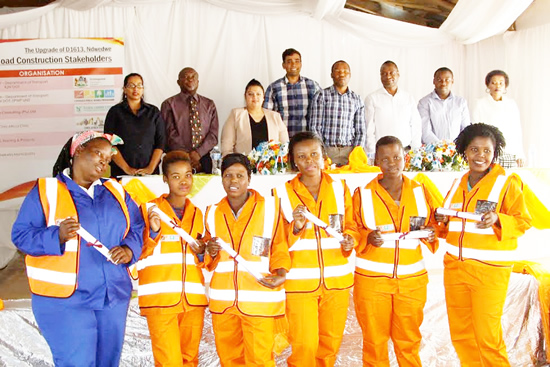 After almost three months of theoretical and on-the-job training, the youth have been recruited to work on the construction of road D1613 as part of a labour-intensive initiative intended to create jobs.
After almost three months of theoretical and on-the-job training, the youth have been recruited to work on the construction of road D1613 as part of a labour-intensive initiative intended to create jobs.
KwaZulu-Natal MEC Mxolisi Kaunda said the EPWP project is in line with government strategies to both build an inclusive economy, and create jobs.
“We are determined to see our youth taking charge of their future, and being active participants in the growth and development of the provinces’ economy,” he said.
“Instead of using machinery for all construction activities on this road, we have decided to use them, to create employment opportunities for our youth. They now have certificates, so they will be able to find work anywhere after the construction project is completed.”
Training graduate Nombulelo Mkhize said she was thankful for the chance to work. “I was sitting helpless at home without a job. Through the opportunity, I will be able to provide for my family.”
Another graduate, Nozipho Khuzwayo, said she was able to earn an income while still in training. “We spent 22 days in class and 44 days working outside. We were paid stipends while we were still in training.”
Ward Councillor Bonke Chili said the project was good for his community.
“Most of the participants are from child-headed household families,” he said. “More than 250 people have benefited from this programme. What excites us most is that it started here in our community. We are the champions of this programme.”
Delmas NYDA office means more services for youth
Delmas NYDA office means more services for youth LondekileYouth focus
The Victor Khanye Municipality and the National Youth Development Agency (NYDA) have partnered to open a new branch office in the town of Delmas. The office will extend the reach of youth services in Mpumalanga.
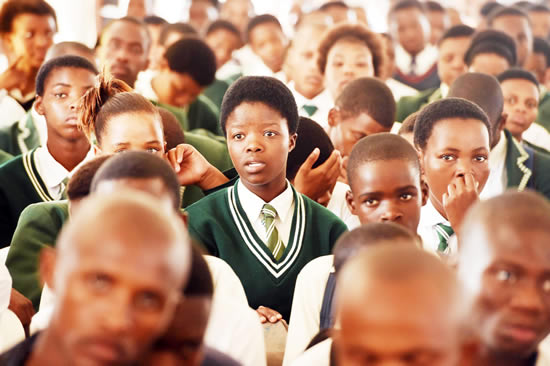 NYDA chair Sifiso John Mtsweni said the agency had to be accessible to youth across the country. “Young people are found in the townships and rural areas. Why is it that the offices of the NYDA are not in the townships and rural areas? This is one of the first things we want to change.”
NYDA chair Sifiso John Mtsweni said the agency had to be accessible to youth across the country. “Young people are found in the townships and rural areas. Why is it that the offices of the NYDA are not in the townships and rural areas? This is one of the first things we want to change.”
At the office, the youth of Delmas will be able to apply to further their education through bursaries and grants from the Solomon Mahlangu Scholarship Fund. Counsellors will also offer training in computer literacy, life skills, career guidance and more.
Services for entrepreneurs
For young entrepreneurs, the Delmas office will provide information on business opportunities. Youth will also be able to apply for NYDA grant funding to start and develop their businesses.
The Delmas branch is the first of four new offices announced by the NYDA at its recent budget presentation. It adds to the 15 other NYDA branches and 200 youth offices across the country. It will offer the same services, but is also a pilot project for the roll out of free wi-fi services at all NYDA offices.
Visit the new Delmas NYDA office on Ruth Mompati Street, Botleng, Delmas.
Medupi Legacy benefits rural schools and clinic
Medupi Legacy benefits rural schools and clinic lebangRural communities in and around Lephalale in Limpopo stand to benefit from the Medupi Legacy project’s multimillion-rand investments in two local schools and a clinic.
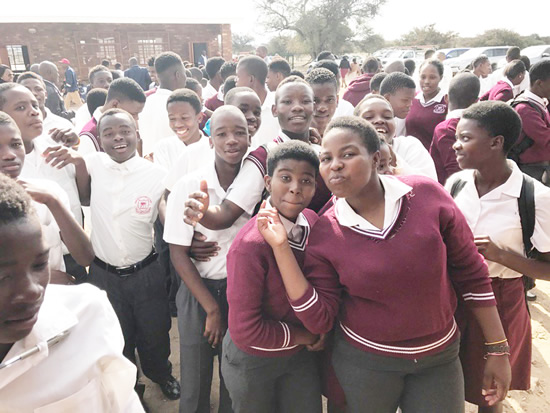 Two schools and a clinic in Limpopo have benefitted from the Medupi Legacy project set up by the Department of Public Enterprises and Eskom’s Corporate Social Investment (CSI) arm.
Two schools and a clinic in Limpopo have benefitted from the Medupi Legacy project set up by the Department of Public Enterprises and Eskom’s Corporate Social Investment (CSI) arm.
Deputy Minister Ben Martins visited Tshukudu Primary and Sethula Secondary schools in Limpopo recently to hand over furniture and new buildings to local communities.
The R11.4 million act of generosity forms part of the legacy project of the Medupi power plant. The new plant is located in Lephalale, close to the rural villages of Bangalong and Ga-Monyeki, which the schools serve.
The deputy minister was joined by Limpopo Education MEC Ishmael Kgetjepe and Health MEC Dr Phophi Ramathuba. The group also visited Marapong Health Centre in Lephalale to inspect a clinic newly refurbished under the project.
The clinic re-opened in March offering medical services for 12 hours a day. The national Department of Health plans to eventually have the clinic serve the community 24 hours a day.
Public-private partnerships
Lephalale’s population has grown by more than 30 per cent in the last few years, putting a strain on the municipality’s ability to meet the needs of the fast-growing town. The Medupi Legacy project invested R5 million to renovate the clinic building.
The project was run in collaboration with the Department of Health, the Lephalale local municipality and mining company Exxaro. This public-private partnership ensured that the local community were employed during the project.
Some R8.6 million has also been invested in a mobile primary health care unit for the children of Marapong township. Children will benefit from medical treatment that comes to them at school, where they can get their eyes tested, be seen by a dentist and get general check-ups. The project was identified by the Lephalale Development Forum, another public-private partnership, which works to identify and coordinate infrastructure projects in the municipality.
The forum’s Jacques Snyman said: “This is an example of what can be achieved when all stakeholders in the area work together towards the same goal – creating facilities that benefit our local communities.”
IDC funding for creative youth
IDC funding for creative youth lebangThe IDC Gro-E Scheme has R4.5 billion available to fund youth-empowering creative enterprises.
 Are you young and creative, with a great business idea? If you are aged between 18 and 36 and need enterprise finance for radio and TV broadcasting, new media, music, film and animation production, or other media, the Industrial Development Corporation (IDC) is looking for you.
Are you young and creative, with a great business idea? If you are aged between 18 and 36 and need enterprise finance for radio and TV broadcasting, new media, music, film and animation production, or other media, the Industrial Development Corporation (IDC) is looking for you.
The IDC’s Gro-E Youth Scheme gives financial and non-financial support to youth enterprises with the potential to create jobs and grow South Africa’s economy.
The scheme has R4.5 billion available to fund youth-empowered and youth-owned enterprises over five years.
The Gro-E Youth Scheme provides loans at an interest rate of up to prime minus three per cent and a real after-tax internal rate of returns six per cent equity.
Funding is available to South African citizens and permanent residents. The minimum that can be applied for is R1 million.
Who should apply for Gro-E Youth Scheme funding?
- Start-up businesses needing funding for buildings, machinery, and working capital
- Existing businesses wanting to expand
- Businesses in which ownership by people aged between 18 and 35 is at least at 25 per cent
- Businesses that demonstrate economic merit and have prospects of acceptable profitability to be able to service their obligation
For more information contact the IDC Call Centre on 086 069 3888 or e-mail callcentre@idc.co.za
Working on Fire heroes honoured
Working on Fire heroes honoured lebangAs firefighters continued to put out runaway fires following an inferno that engulfed forests and towns along the Western Cape coast, Greater Knysna residents recently formed a guard of honour to thank Working on Fire members for their bravery over 12 long days spent battling the blaze.
 Working on Fire (WoF) is an Expanded Public Works Programme under the Department of Environmental Affairs. It provides young women and men from marginalised communities with training and work opportunities. In June it deployed 450 firefighters to help local firefighting efforts in the holiday towns of Knysna, Plettenberg Bay, Sedgefield and George.
Working on Fire (WoF) is an Expanded Public Works Programme under the Department of Environmental Affairs. It provides young women and men from marginalised communities with training and work opportunities. In June it deployed 450 firefighters to help local firefighting efforts in the holiday towns of Knysna, Plettenberg Bay, Sedgefield and George.
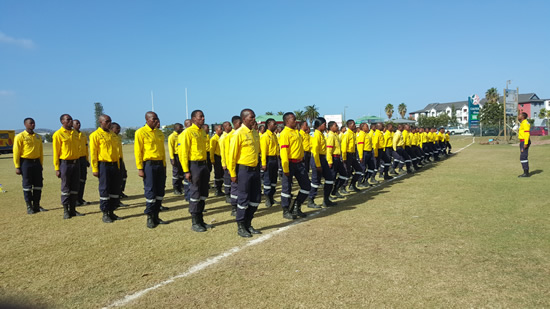 In Knysna, WoF members formed the bulk of firefighting efforts, according to Lauren Howard, the organisation’s provincial communications officer. The fire burned some 215 000 hectares of land and damaged 480 structures. It also claimed the lives of seven people, including volunteer firefighter Bradley Richard.
In Knysna, WoF members formed the bulk of firefighting efforts, according to Lauren Howard, the organisation’s provincial communications officer. The fire burned some 215 000 hectares of land and damaged 480 structures. It also claimed the lives of seven people, including volunteer firefighter Bradley Richard.
“On Saturday, 17 June 2017, the Greater Knysna residents formed a guard of honour to thank our brave firefighters at a unity march,” Howard said. “Thousands of people gathered to bid farewell to the firefighters who fought the Knysna fire for 12 days.”
Disaster relief
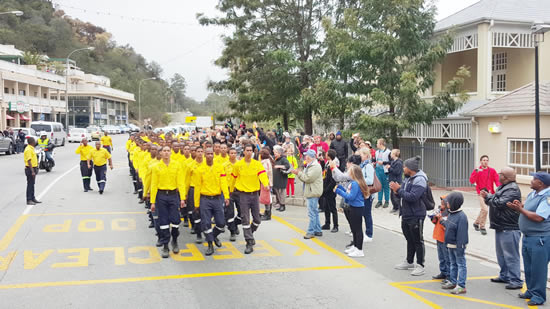 When the massive fires started, the Knysna Local Municipality evacuated about 8 000 people from their homes.
When the massive fires started, the Knysna Local Municipality evacuated about 8 000 people from their homes.
President Jacob Zuma dispatched disaster relief support to all areas devastated by the fires, particularly poor communities. This was coordinated through the national joint operation centre for disaster management, working with the Western Cape government’s provincial disaster management teams.
Additional relief and support has been provided by the Knysna Municipality, members of the community, Operation SA, KFC, the Al-Imdaad Foundation, Kulula Airline, Mango Airlines, FlySafair, Federal Airlines, and others.
Human Settlements Bank helps the ‘missing middle’
Human Settlements Bank helps the ‘missing middle’ lebangThe Department of Human Settlements’ new development finance bank will help bridge the gap for people who don’t qualify for commercial bank loans or government housing assistance.
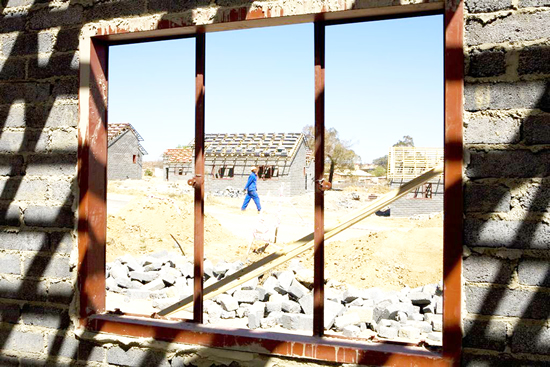 The Department of Human Settlements is to launch a new bank that will not only boost emerging black property entrepreneurs, but also finance homes for the “missing middle” – people too poor for regular bank loans, but with enough money to exceed the limit for social housing.
The Department of Human Settlements is to launch a new bank that will not only boost emerging black property entrepreneurs, but also finance homes for the “missing middle” – people too poor for regular bank loans, but with enough money to exceed the limit for social housing.
The Human Settlements Bank was announced by Human Settlements Minister Lindiwe Sisulu during her budget vote speech in May.
The bank will help increase funding from the Finance Linked Individual Subsidy Programme to qualifying beneficiaries in the gap market, including the Government Employee Housing Scheme.
A long time coming
According to Human Settlements Director-General Mbulelo Tshangana, the bank has been a long time coming. It will be an amalgamation of the department’s three existing development finance institutions.
There was no intention of competing with private banks, he added. In fact, the department was already discussing partnerships with commercial banks.
Households wanting to apply for a loan from the Human Settlements Bank must have a total income of R240 000 a year or less, Tshangana said.
"We fund end users, we fund developers, we fund projects. It's a wide range of products and services,” he said.
More than homes
In her budget vote speech, Minister Sisulu said the bank would also finance bigger housing projects.
“The strategic focus of the bank will be to facilitate the increased provision of finance across the human settlements value chain, and the specific priority for the bank in this respect is the mobilisation of and the provision of finance for all planned catalytic projects.”
A thousand houses for Ofafa villagers
A thousand houses for Ofafa villagers lebangA thousand households from Ofafa village in Harry Gwala District Municipality will soon live in decent housing, thanks to the KwaZulu-Natal Department of Human Settlements. The R110 million housing project was recently handed over by MEC for Human Settlements Ravigasen Pillay.
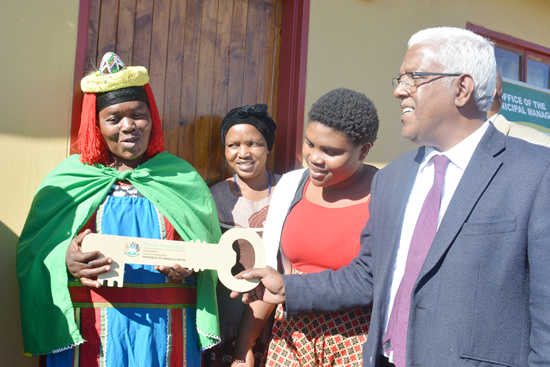 “I can’t believe it is mine,” said Qhamkile Mbele, 45, one of the Ofafa project beneficiaries.
“I can’t believe it is mine,” said Qhamkile Mbele, 45, one of the Ofafa project beneficiaries.
“I always dreamed of owning a decent house one day. But I could not afford it, as building material is very expensive. This is my first house built with bricks – not to mention the roof tiles. If government didn’t build this house I would have gone on living in mud housing,” she said.
“Even if I can die today I can rest well knowing that I left my family in a better place.”
Huge social housing projects
At the handover ceremony MEC Pillay said each house would have ceiling board, electricity and a rainwater tank.
“In KwaZulu-Natal we have built more than 900 000 homes since 1994 and created more than 80 000 housing opportunities through serviced sites,” he said.
“The Ofafa housing project follows one of the country’s biggest social housing projects in Westgate, Pietermaritzburg. That project accommodates 3 500 beneficiaries and cost close to R400 million.”
Madagascar turns to SA for investment
Madagascar turns to SA for investment lebangInternational relations / Africa news
President Hery Rajaonarimampianina of Madagascar has urged South African businesses to invest in his island country, which lies on a major sea route between Asia and Africa.
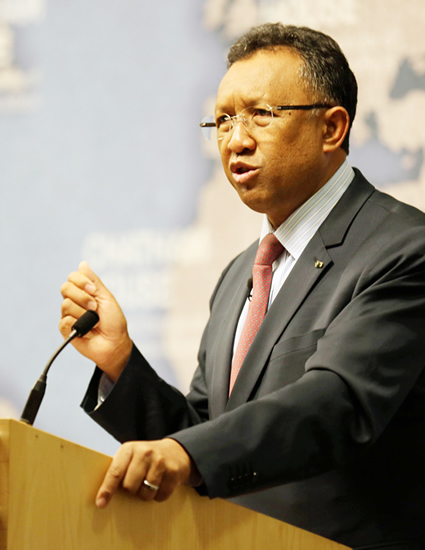 The Department of Trade and Industry in partnership with the Department of International Relations and Cooperation and the Development Bank of Southern Africa hosted President Hery Rajaonarimampianina of Madagascar recently.
The Department of Trade and Industry in partnership with the Department of International Relations and Cooperation and the Development Bank of Southern Africa hosted President Hery Rajaonarimampianina of Madagascar recently.
The Malagasy leader urged the South African business leaders who attended the Madagascar Investors Conference to invest in his country. He pointed out that there were compelling reasons for South Africa to look at channelling investment into Madagascar.
While South Africa’s imports from Madagascar accounted for just 5.7 per cent of all goods imported, we are the island’s biggest export market. Exports to South Africa have risen from R588 million in 2012 to R1.6 billion in 2016.
Goods produced or shipped from the island nation have preferential access to American and European markets. Madagascar sits on a major sea route between Asia and Africa. The conference highlighted investment opportunities in Madagascar for South African businesses.
The conference aimed at promoting Madagascar as an investment destination and further profiled the country’s economic opportunities, particularly the Presidential Priority Projects available in the market that South African investors and Development Finance Institutions can take advantage of.
South African know-how
President Rajaonarimampianina invited the private sector to get involved in large infrastructure projects in the mining and textile sectors. “All of these projects will require ports, roads and railways in which South Africa could invest.”
Energy, infrastructure, tourism and mining are the sectors most in need of investment. The projects would also require South African know-how and talent.
President Rajaonarimampianina reminded business leaders that his country was eager to attract investment and would listen to their concerns about the stability of the government and the safety of their investments.
Like South Africa, Madagascar is looking to build a sustainable economy that improves the lives of all its citizens. “Our ambition is one, and that is to improve the lives of our citizens. We call upon the South African business community to partner with us in this goal.”
This month in history - Jul 2017
This month in history - Jul 2017 lebangInternational relations / Africa news
Patrice Lumumba is born 2 July 1925
Patrice Lumumba was born in today’s Democratic Republic of Congo, then the Belgian Congo, in 1925. For decades his country had suffered terrible atrocities under its Belgian colonial masters.
Lumumba helped win the Congo’s independence from Belgium in 1960, and was elected Prime Minister. But after only 12 weeks in power, the new democratic government was deposed in a coup, and Lumumba was arrested.
He was executed by a firing squad on 17 January 1961. It later emerged that Lumumba’s death had been orchestrated Belgian and US forces who opposed his vision of a free and united Congo.
Source: South African History Online – www.sahistory.org.za
BRICS talks on agriculture and rural development
BRICS talks on agriculture and rural development lebangInternational realtions / Africa news
Minister of Agriculture, Forestry and Fisheries Senzeni Zokwana recently joined her counterparts from Brazil, Russia, India and China for the 7th Meeting of the BRICS Ministers of Agriculture and Agrarian Development, held in China.
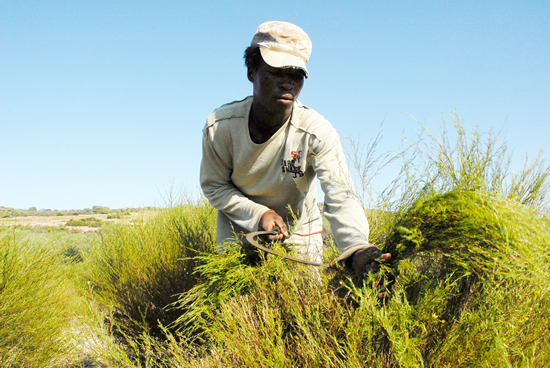 Up for discussion was the Action Plan 2017-2021 for Agricultural Cooperation of BRICS Countries. At the last meeting in Goa, India, South Africa agreed to develop a strategy on climate change, under the 2012-2016 plan.
Up for discussion was the Action Plan 2017-2021 for Agricultural Cooperation of BRICS Countries. At the last meeting in Goa, India, South Africa agreed to develop a strategy on climate change, under the 2012-2016 plan.
The priorities for the next five years are boosting agri-investments in both public and private sectors, protecting small farmers, investments in water infrastructure, use of technology, and climate-resilient agriculture.
BRICS agriculture research platform
The ministers discussed the operations of the BRICS Agriculture Research Platform and signed a memorandum of understanding to make the centre operational. The BRICS governments foresee the centre being the world’s leading agricultural research operation.
The digital centre will develop and share models for sustainable agriculture for the BRICS partners. These five nations are responsible for 45 per cent of global agriculture, so the centre’s research will help with food security for the planet’s entire population.
The meeting produced a list of local institutions that will house the research arm for each nation. Minister Zokwana nominated the Agricultural Research Council as South Africa’s representative body.
“We continue to work hard to open markets for South African produce in the world and making use of relations we have in BRICS to further grow the agriculture industry in our country,” Minister Zokwana said."
Steven Pienaar Cup fosters a love of football
Steven Pienaar Cup fosters a love of football lebangSport, arts and culture
Football star Steven Pienaar’s annual tournament in his home town of Westbury aims to rouse young people’s passion for football and fight drug abuse.
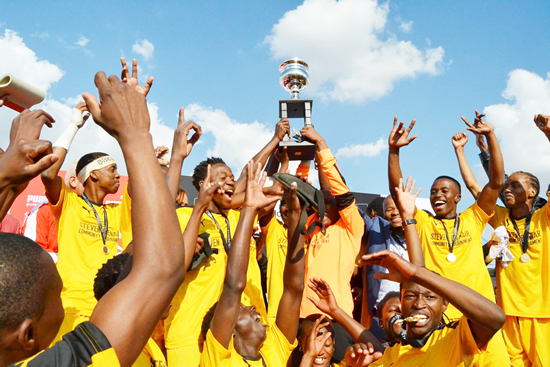 The Steven Pienaar Community Cup in Westbury, Johannesburg, is inspiring young people’s passion for football – and tackling social ills.
The Steven Pienaar Community Cup in Westbury, Johannesburg, is inspiring young people’s passion for football – and tackling social ills.
A celebrated soccer star raised in Westbury, Pienaar captained Bafana Bafana until 2012, and played for international teams such as Sunderland, Ajax, Borussia, Dortmund and Everton.
Ronsle Mitchell is the owner of Liverpool FAFC, one of the local teams that took part.
“The Steven Pienaar tournament gives our boys exposure and opens their eyes to the fact that they can use soccer as a career,” he said.
“The communities where these boys come from are infested with drugs and such sporting games in the community are an indication that young people can make it out.”
The winners
The first Community Cup was held in 2003 with only eight teams. This year’s event attracted 158 clubs from across Gauteng.
The tournament caters for development teams from under-8 to under-20. It also has nine women’s teams and an open category for seniors, to discover future talent.
Codessa Football Club won the open category, walking away with R100 000 in prize money.
The tournament is sponsored the Gauteng Department of Sport, Arts, Culture and Recreation, the City of Johannesburg and Puma.
Other teams taking part included Westbury Spurs, Real Madrid, Boca Juniors FC, Fighters, Diepkloof Diplomats, Yorkshires, Future Stars, Palmeros, Prestige Academy, Argentinos, Mogale Celtic FC, Eden Park Callies, The Boys, Soweto Scorpions, Toekies United, Godisanang FC, Glorias Stars, Thames, United FC, Eberneze Youth Development, Westbury Stars Academy, Martindale, River Spears, Zico Boys, FC Munchen, Roses United, Noordgesig United and Umlilo.
Bright future for young runners
Bright future for young runners lebangSport, arts and culture
Young runners recently celebrated success in the KwaZulu-Natal Department of Sport and Recreation’s 10-kilometre Youth Run.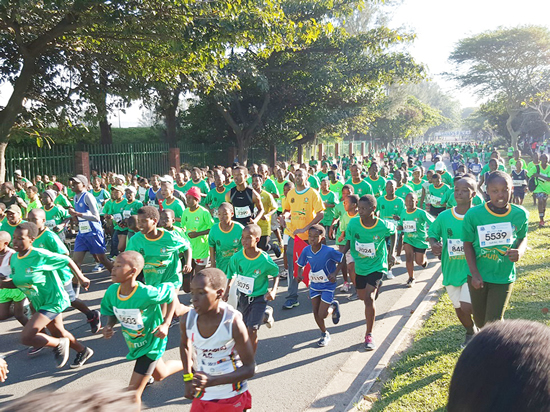
The field of over 7 400 athletes were led by Wiseman Mthembu (18), winner of the men’s event, and Aphelele  Jikela (16), who won the women’s race.
Jikela (16), who won the women’s race.
The Youth Run is held at King’s Park Stadium in collaboration with KZN Athletics. It also has a 5-kilometre race for children aged nine to 13.
Mthembu, a Grade 9 learner at Ndondakusuka High Shool in Mandeni, said this year’s run was his second.
“Last year I came 15th because I was not well organised and I did not have running shoes,” the winner said. “But this year I came well prepared. I see myself having a bright future in athletics.”
It was third time lucky for women’s event winner Jikela, who attends Umlazi’s Zwelibanzi High School.
“In 2015 I finished in 11th place. Last year I came second. I am happy that this year I finished first. I struggled a bit in the first five kilometres, but after that I regained my strength.”
The two learners won R1 000 each, with runners from second to 10th place receiving between R900 and R100.
Zwelibanzi High School in Umlazi walked away with the R5 000 prize money for having the most athletes finishing the race. Ndongeni High School was in second place and Bechet High School in third.